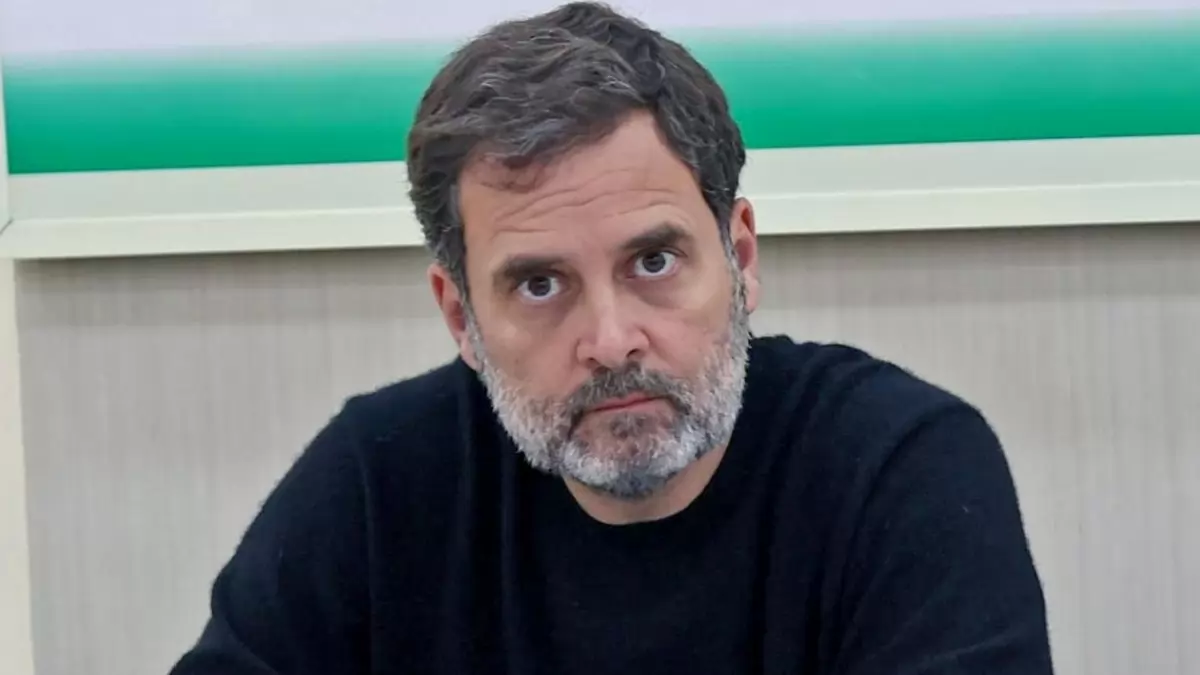
ANI
New Delhi: Massive queues of customers swarm fuel stations in states like Maharashtra, Punjab, Madhya Pradesh, Himachal Pradesh, and Jammu and Kashmir, as the ongoing truckers' strike severely impacts supplies, prompting panic buying.
Congress MP Rahul Gandhi criticises the Modi government's handling of the transporters' strike, triggered by the provisions of the Bharatiya Nyay Sanhita concerning road accidents. Gandhi highlights the lack of consultation with the affected class and opposition, calling it an assault on democracy.
Criticising the Narendra Modi-led central government, Rahul Gandhi took to X, formerly Twitter, and wrote in Hindi, "The insistence on making laws without discussion with the affected class and without dialogue with the opposition is a continuous attack on the soul of democracy. While more than 150 MPs were suspended, Shahenshah in Parliament enacted a law against drivers, the backbone of the Indian economy, which could have fatal consequences. Throwing this hard-working class with limited earnings into the harsh legal furnace can badly affect their lives. And also, misuse of this law can lead to 'recovery mechanisms' along with organized corruption. The government which runs democracy with the whip has forgotten the difference between 'emperor's orders' and 'justice'."
बिना प्रभावित वर्ग से चर्चा और बिना विपक्ष से संवाद के कानून बनाने की ज़िद लोकतंत्र की आत्मा पर निरंतर प्रहार है।
— Rahul Gandhi (@RahulGandhi) January 2, 2024
जब 150 से अधिक सांसद निलंबित थे, तब संसद में शहंशाह ने भारतीय अर्थव्यवस्था की रीढ़, ड्राइवर्स के विरुद्ध एक ऐसा कानून बनाया जिसके परिणाम घातक हो सकते हैं।
सीमित…
Gandhi condemns the enactment of laws without proper discussion, citing the suspension of over 150 MPs. He contends that legislating against drivers, crucial to the Indian economy, without dialogue can have severe consequences. The shift towards harsh legal measures may adversely affect the lives of hard-working individuals with limited earnings.
Expressing concern, Gandhi warns against the misuse of the law, leading to 'recovery mechanisms' and organised corruption. He accuses the government of forgetting the distinction between 'emperor's directive' and 'justice' while running democracy with a whip.
The Bharatiya Nyay Sanhita, replacing the British-era Indian Penal Code, stipulates that drivers causing serious road accidents due to negligence, and fleeing without informing the authorities, could face up to 10 years in prison or a ₹7 lakh fine. This marks a significant increase from the two-year punishment under the previous IPC.
The provisions of the new law have sparked widespread protests, with transporters and auto-driver associations staging strikes in multiple states. Maharashtra, Punjab, Madhya Pradesh, Himachal Pradesh, and Jammu and Kashmir are among the regions witnessing disruptions.
Meanwhile, Union Home Secretary Ajay Bhalla is scheduled to meet protesting truck drivers in the evening, with hopes of an amicable resolution. The government faces the challenge of addressing the concerns raised by the striking transporters amid the escalating chaos.
As the transporters' strike throws normalcy into disarray, the criticism from political quarters, especially Rahul Gandhi, underscores the need for a more consultative and inclusive approach in framing laws that impact key sectors of the economy. The unfolding chaos demands a swift and effective resolution to prevent further disruptions and alleviate the concerns of the affected class.





Copyright © 2026 Top Indian News
